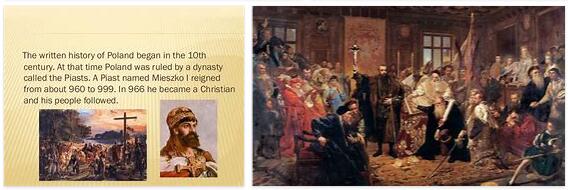In the first years of his reign he only succeeded in improving the desolate conditions of the cities, in healing the finances and laying the foundations for a renewal of the command centers of the army with the establishment of the “cadet” school. For the rest, too much was the disproportion between his good intentions and the Russian arrogance – which, when his interests were at stake, even the vigilant and astute Prussian king lent a hand – for him to escape from a humiliating and nefarious protection. Indeed, at the first opportune moment, the principle of unanimity in the votes was under discussion, the Russian ambassador Repnin, true lieutenant of Catherine II in Poland, did not hesitate to incite the opposition against the king (Radom confederation, 1767). reduction of “constitutional freedoms” – in this it was in full agreement with Russian politics – but also averse to recognizing equal rights to Protestants and Orthodox – and here it was in stark contrast to Russian and Prussian demands. The king was left with nothing other than to submit entirely to the dictates of Russia which, absent the diet, specially convened, reinstated the so-called cardinal laws of the republic (liberum veto, free election, right to refuse obedience to the king, perpetuation of the prerogatives of nobles, etc.), assumed the guarantee, reserved the right to approve or not any attempt to reform the Polish constitution and imposed on Poland the recognition of equality to religious dissidents.
Then the opponents of Russia rose up in defense of Catholicism and independence. The movement, known under the name of the confederation of Bar (1768), had, it is true, clearly conservative and reactionary tendencies, but it was animated by a patriotic spirit sovigorous to spread rapidly among the noble masses and even among a part of the bourgeoisie and to attract the attention of many foreign states: France sent a group of officers to the aid of the Confederates, including Dumouriez and Kellermann; Turkey pushed by France declared war on Russia; Austria itself assumed an attitude of sympathy and protection. Thus it was that Poland was able to overcome, without serious damage, the uprising of the Ukrainian peasants and resist Russian power for a few years. The king himself, uncertain at first, would probably have joined the Confederates if they had not pushed him back to Russia by proclaiming his dismissal and even attempting to kidnap him at gunpoint. Still divided by a part of the country and also at odds with each other,
According to shoefrantics.com, thus ended, with the exile and emigration of the best, what can be called the first Polish uprising, while Russia and Prussia had already agreed on the modalities of the first partition (1772). To them was added, allured by Prussia and apparently reluctant at first, Austria. Poland lost about one third of its territory and two fifths of its population. Russia took possession of the remaining Polish territories beyond the Dźwina and the Dnieper; Frederick obtained West Prussia (without Danzig) and a northern strip of Greater Poland; Austria finally took over all of the future Galicia and the Zamość region. King Stanislaus tried in vain to react, and the diet – which in the meantime had united in confederation, which avoided the stumbling block of the unanimity of the votes,
The forced acceptance of brutal reality, however, did not mean passive resignation in the face of the increasingly threatening press of events. The diet itself, while sanctioning the territorial reduction of the state, laid the foundations, with the institution of the “educational commission”, for a moral recovery of the nation. In fact, this commission, which soon became a veritable ministry of education, profoundly reformed the Polish school of all regions and grades, drawing its resources from the acquitted Jesuit order, and validly supported the cultural renewal that also in other ways – personal ascendancy and patronage of the king, revival of literature, increased interest in historical research, the beginning of regular journalism,
The tendencies towards a radical reform of the social and political structure of the state also resumed, and with ever greater vigor and insistence. There were various demands, especially under the influence of French ideology and example, for the personal freedom of the peasantry, the equation of the bourgeoisie with the nobility, the establishment of a stable parliament, a hereditary monarchy and a government. strong. Some of these demands still met with strong resistance from conservative elements of the nobility, reluctant against any curtailment of their prerogatives; the creation of others paved the way for the establishment of the “permanent council” which, wanted by Russia to have easier control over the internal affairs of Poland, had become, under the skillful direction of the king, an instrument of slow but continuous consolidation of the state organism: among other things, the conditions of agriculture and commerce were improved and there was also an initial start of industrial enterprises. The diet that met in 1788 and which for its exceptional duration was called the “four-year diet”, started its activity under good auspices. Russia was engaged in war with Turkey and a defensive alliance was concluded with Frederick William II of Prussia.
